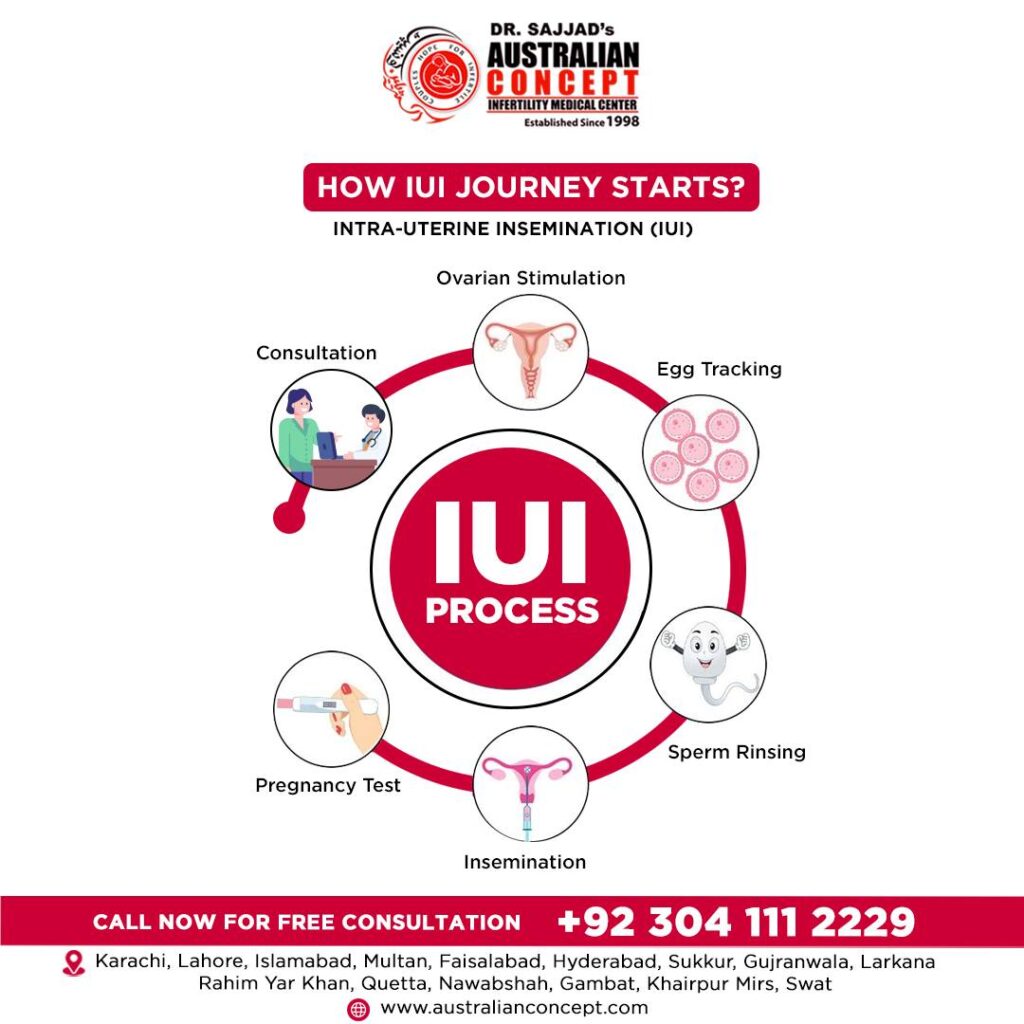Intrauterine Insemination (IUI) is a common fertility treatment aimed at helping couples who are struggling to conceive. It is less invasive than other fertility treatments like IVF but can be highly effective for certain fertility issues.
What is IUI?
IUI is a fertility treatment that involves placing sperm directly into a woman’s uterus around the time of ovulation. This method helps increase the chances of the sperm reaching the egg for fertilization. It is often recommended for couples facing issues like unexplained infertility, mild male factor infertility, or cervical mucus problems that make it difficult for sperm to enter the uterus. The best fertility center in Lahore often recommends IUI as an initial treatment before moving to more advanced methods.
How IUI Works
The IUI process starts with the collection of a sperm sample, either from the male partner or a donor. The sperm is then processed in a lab to separate the healthy, motile sperm from those that are not viable. The best sperm are selected for the procedure to increase the likelihood of success. During ovulation, which is often tracked using ovulation kits or medications to stimulate egg production, the processed sperm is inserted into the uterus using a thin catheter. The procedure itself is quick and generally painless.

Who is IUI Suitable For?
IUI is a good option for couples who are experiencing:
- Mild male factor infertility (such as low sperm count or motility)
- Unexplained infertility
- Ovulation disorders
- Cervical mucus issues that inhibit sperm from reaching the egg
- Mild endometriosis
It is also a popular choice for same-sex couples and single women who use donor sperm. At the best IVF clinic in Pakistan, IUI is often one of the first steps in a fertility treatment plan.
The IUI Process: Step-by-Step
- Consultation with a fertility specialist: The first step involves meeting with a fertility expert to determine if IUI is the best treatment for you. They will review your medical history and conduct tests like blood work and ultrasounds.
- Ovulation monitoring: If you are not using ovulation-stimulating medications, your doctor will monitor your cycle to determine the best time for the procedure. This may involve using at-home ovulation predictor kits or having ultrasounds at the clinic.
- Sperm collection and preparation: On the day of the procedure, the sperm sample will be collected. It will then be “washed” in the lab to isolate the best-quality sperm.
- Insemination: The doctor will use a thin, flexible catheter to place the processed sperm directly into the uterus. This procedure is quick, often taking just a few minutes. While some women may experience mild discomfort, it is typically not painful.
- Post-procedure: After the IUI, you will be asked to rest for a short period. You can resume normal activities later that day. About two weeks after the procedure, you will take a pregnancy test to see if the IUI was successful. The IUI treatment process is straightforward, making it a popular choice for couples looking for less invasive options.
Success Rates of IUI
The success rate of IUI depends on several factors, such as age, fertility issues, and the use of fertility medications. Women under 35 with no significant fertility issues may have a success rate of 10-20% per cycle. However, success rates can be lower for women over 40 or those with more severe fertility challenges. Your fertility specialist will discuss your chances of success based on your individual circumstances.
Risks and Side Effects
IUI is generally a safe procedure with minimal risks. However, some potential risks include:
- Mild cramping or discomfort during or after the procedure
- A small risk of infection
- Multiple pregnancies (if ovulation-stimulating medications are used)
Your fertility specialist will guide you through the risks and ensure that IUI is a safe option for your fertility journey.
Conclusion
Intrauterine Insemination (IUI) is a less invasive fertility treatment that offers hope to couples facing mild fertility challenges. The process is simple, with a relatively high success rate for suitable candidates. By working closely with a fertility specialist at a reputable clinic like the best IVF clinic in Pakistan, you can determine if IUI is the right option for you on your path to parenthood.